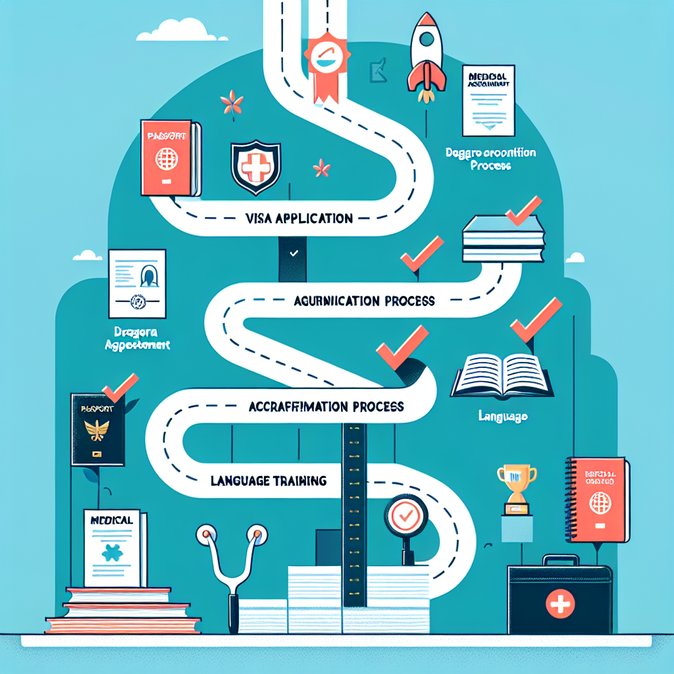
Medical portal Medscape Europe released a comprehensive guide on 11 November outlining the steps non-EU physicians must take to practise medicine legally in Belgium. The article explains the sequential process: obtain a type D long-stay visa, secure academic equivalence of the medical degree, complete professional accreditation with the FPS Public Health, and finally register with the Order of Physicians to receive an INAMI billing number. Typical processing times range from three to nine months.
The guide emphasises that EU-qualified doctors benefit from automatic degree recognition under Directive 2005/36/EC but must still secure language proficiency at B2 level (C1 for some specialties) in Dutch, French or German, depending on the region of practice. For non-EU doctors, additional adaptation internships or exams may be required, adding complexity and cost.
![Guide Published for Foreign Doctors Navigating Belgium’s Medical-Licence Maze]()
Belgium’s multilingual environment means mobility managers must align language-training budgets with assignment timelines. Hospitals in Brussels and Flanders report shortages in anaesthesiology and geriatrics, offering signing bonuses to foreign specialists who can clear the regulatory hurdles. The article lists job-search platforms such as Actiris, Le Forem and VDAB, which can be integrated into corporate-relocation support packages.
From an immigration-compliance standpoint, the publication is timely: Flanders will introduce a new fast-track for highly skilled healthcare workers in January 2026, and salary thresholds for work-permit holders in Brussels will rise to €4,748 gross per month from 1 January 2025. HR teams placing expatriate doctors should budget for higher guaranteed remuneration and factor in social-security contributions under Belgium’s special expat tax regime.
The guide emphasises that EU-qualified doctors benefit from automatic degree recognition under Directive 2005/36/EC but must still secure language proficiency at B2 level (C1 for some specialties) in Dutch, French or German, depending on the region of practice. For non-EU doctors, additional adaptation internships or exams may be required, adding complexity and cost.

Belgium’s multilingual environment means mobility managers must align language-training budgets with assignment timelines. Hospitals in Brussels and Flanders report shortages in anaesthesiology and geriatrics, offering signing bonuses to foreign specialists who can clear the regulatory hurdles. The article lists job-search platforms such as Actiris, Le Forem and VDAB, which can be integrated into corporate-relocation support packages.
From an immigration-compliance standpoint, the publication is timely: Flanders will introduce a new fast-track for highly skilled healthcare workers in January 2026, and salary thresholds for work-permit holders in Brussels will rise to €4,748 gross per month from 1 January 2025. HR teams placing expatriate doctors should budget for higher guaranteed remuneration and factor in social-security contributions under Belgium’s special expat tax regime.











